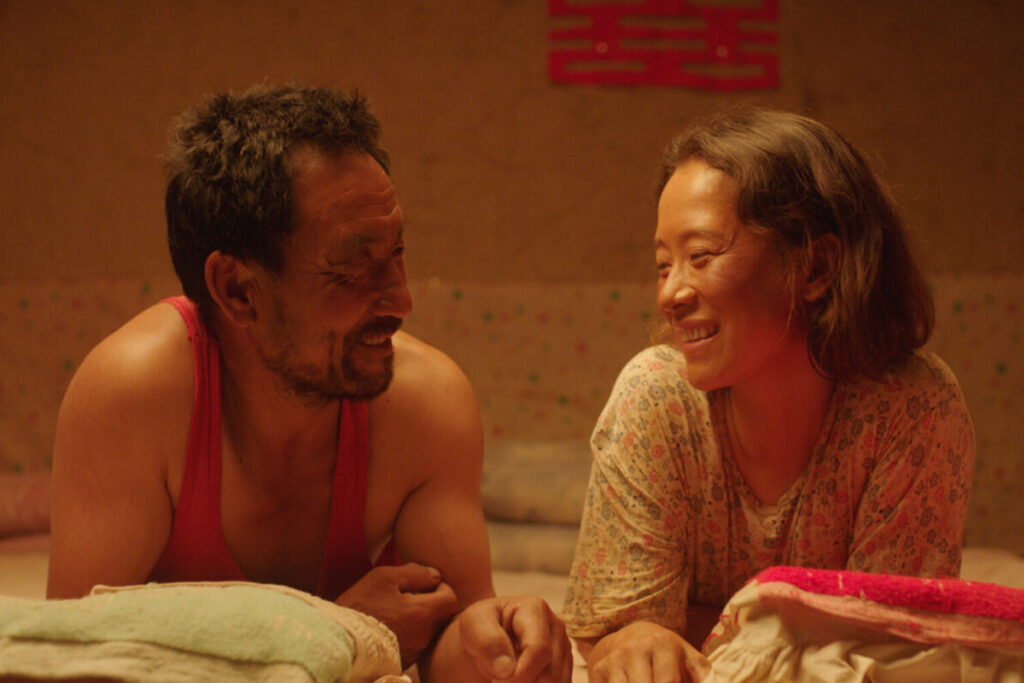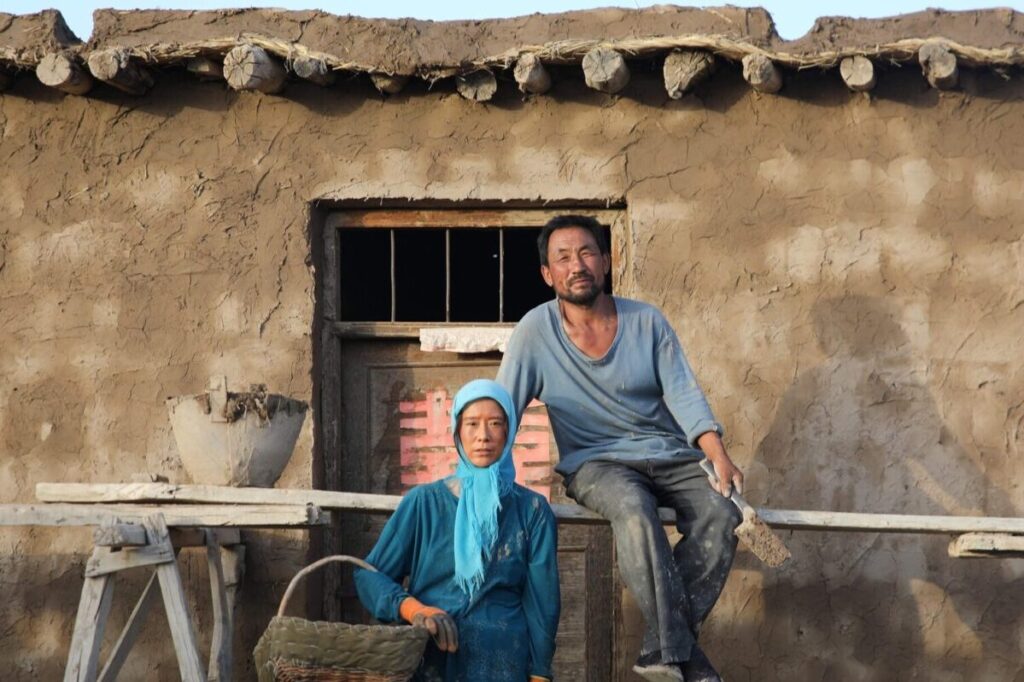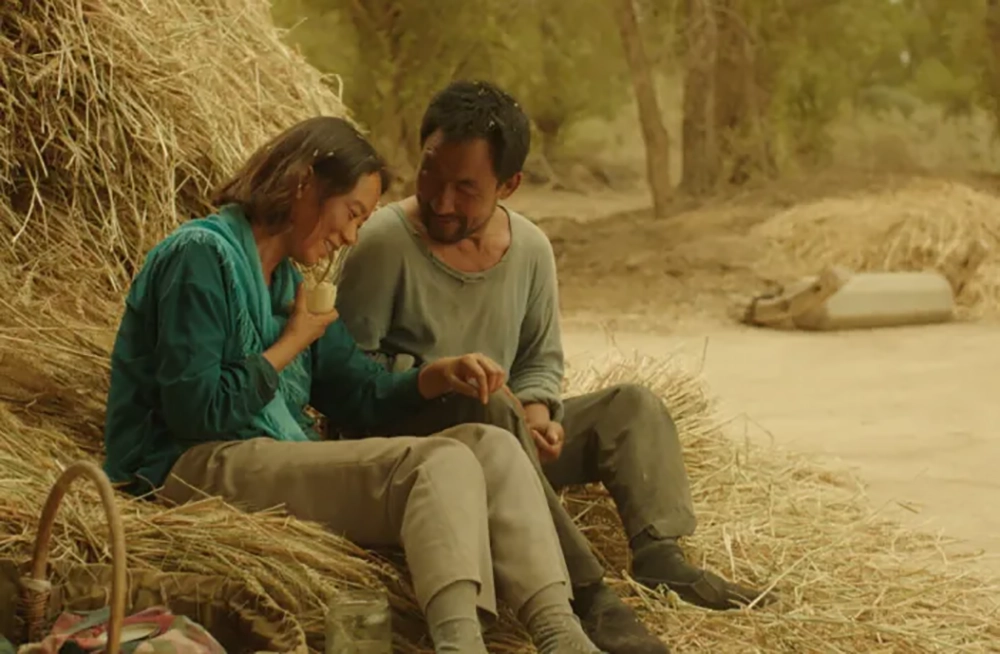“Everyone has his own destination,” the husband reflects. “Even the wheat. When summer comes, it’ll be cut down anyway.”
It’s a pragmatic worldview to the science of agriculture: seasons come, seasons go. The husband, however, adds that even people have ends and beginnings, doing away with the old and paving the way for something new.
In this Chinese drama, the couple’s relationship grows even as the (relatively simple) world around them crumbles, no thanks to urbanization driven by the politics of greed. And with that, whether they succeed in eking a living out of what’s left for them becomes only secondary to how they can sustain the fire that just lit up between them.

On Centuries-Old Traditions Dictating One’s Worldview and Way of Life
“Return to Dust” follows the story of Ma Youtie and Cao Guiying (Wu Renlin and Hai Qing), two people who get together as a result of arranged marriage by their families. However, the reason for the arrangement comes clear from the get-go: with their advanced age, their families see them both as difficult and hopeless. As a reticent farmer, Ma remains the only member of his family yet to unmarry. On the other hand, Cao suffers from incontinence and infertility; and whose singleness classifies her as what the Chinese derogatorily refer to as a ‘leftover woman’.
For both their families, the union serves as a good riddance—and miracle even, should it succeed. However, something slowly happens between Ma and Cao: here are two people having humiliation and ostracism for breakfast every day, now finding a kindred soul in each other. Ma’s sagelike remarks to Cao, even when delivered at their most perfunctory, carry a lot of weight. “Eat,” he urges Cao one sunny afternoon as they perch atop a sandy plain to rest. “If the living don’t eat, the dead don’t receive.” Once, there were two people who had grown used to their solitude; so much so that their resignation meant that self-pity went out the window a long time ago. And now both have found someone genuinely striving to care for them.
All these explain why this new arrangement feels so foreign to them. Now, an entirely new world opens up to each other, and their reticence and lethargy are the only things standing in the way. Nonetheless, from the initial wordless interactions and awkward gestures of affection, the two graduate to becoming close companions. And as noted at the onset, they become partners, dead-set in trying to rise above the challenges that await their now-two-way street.
‘Return to Dust’: Li Ruijun’s Ode to His Beloved Native Region
Returning to his birthplace of Gaotai, director Li Ruijun aimed to portray how the traditional way of life is dying at a fast pace, as though keeping abreast with the country’s equally rapid decimation of its rural communities.
But while he makes use of pressing topics such as forced urbanization and exploitation of farm workers living in poverty to get his point across; “Return to Dust” doesn’t bother going deep and examining the politics involved therein. Instead, all these serve as merely backdrop to the characters’ exploration of their worldview as one.
And for what it’s worth, it works. Li’s decision to zero in on Ma and Cao—while using extensive wide shots—gives off a feel that this couple, despite their relatively advanced age, deserves the audience’s attention as they forge a new life together. The result is a story infused by genuine love, underscored by tenderness and profound humanity.
Li’s storytelling also gets a boost from the photography. When done right, cinematography can either juxtapose the inner conflicts with lush, serene backdrops; or mirror one’s inner turmoil with the choice of hues to paint a larger canvas. In this case, Wang Weihua’s camerawork complements the two characters’ plight; mirroring it with the snowy climate when we first see them set up for marriage, before switching to warmer hues as they both start to fall for each other.

Nuanced, Tender Performances Outline the Essence of Human Connection
Finally, we can only care so much for a story and its characters if the caliber of the performances matches that of the screenplay. Wu Renlin and Hai Qing’s portrayals of Ma and Cao, respectively, are an exercise in nuance. Sure, their burgeoning relationship might blossom at a slow pace, and sometimes to a fault. But how they portray the characters onscreen exudes charm and sincerity; and it makes the audiences work double hard to see a payoff that’s as satisfying as it is worthwhile.
“Return to Dust” is a profoundly sensitive and tender examination of human connection amid a worldview shaped by urbanization, cultural tradition, and societal expectations. And propelled by Wu Renlin and Hai Qing’s nuanced performances, the film highlights the inevitability of new beginnings, whether in one’s current life or the next.
 “Return to Dust” had its world premiere at Berlinale 2022; and is among the Contemporary World Cinema selections for this year’s Toronto International Film Festival.
“Return to Dust” had its world premiere at Berlinale 2022; and is among the Contemporary World Cinema selections for this year’s Toronto International Film Festival.
Support the Site: Consider becoming a sponsor to unlock exclusive, member-only content and help support The Movie Buff!

